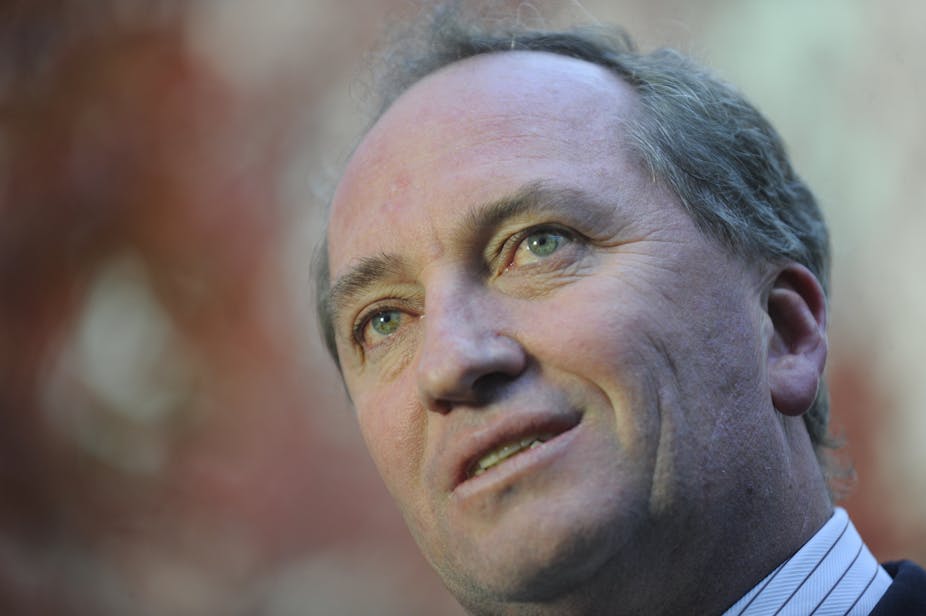It might be the mickey mouse part of September 14 but the referendum to recognise local government in the constitution will be a fascinating case study of what happens to a view held by the public when it comes under heavy assault from a negative campaign.
The quest to get a “yes” vote for a change that would ensure the constitutionality of federal funding for local roads and the like starts from a strong position on the numbers.
A Nielsen poll this week showed overwhelming support – 65% nationally. The proposal also has a majority in all the states for which there were figures: NSW 63%; Victoria 62%; Queensland 70%; South Australia/Northern Territory 65%; Western Australia, 69%.
Yet senior figures on both sides of politics, whether they are for or against the move, believe the referendum is likely to fail. This is despite it having formal bipartisan support at federal frontbench level.
While there is a good argument for the recognition, this is a referendum that many of those backing the “yes” case don’t actually want held.
Key ALP campaigners think it is an extra burden in an election where Labor has almost nothing going for it. When people are in such a negative mood about the government, they are not likely to be very positive in the ballot box about the referendum.
Tony Abbott has inherited backing for the change, which has been Coalition policy for some time. For him the referendum is just a distraction, and an unhelpful one. His support is in principle and anaemic at best.
The opposition says it will be campaigning at the election to change the government, not the constitution.
A number of Coalition backbenchers are readying to man the “no” barricades. Abbott has already given the go ahead for MPs to cross the floor so there can be a “no” case prepared.
WA Liberal senator Dean Smith, one who will cross the floor, said this week that recognition would “distort the federal structure, give rise to unforeseen and unintended consequences and will lead to an eventual eclipse of the states and their eventual irrelevance as a balance against the centralist power of the Commonwealth”.
Smith added that the referendum was part of the “shabby” post election deal with the Greens; there had been “virtually no public discussion” about Labor’s “rushed proposal”.
Last weekend the WA Liberal state council, reaffirming its opposition to recognition, resolved “that as part of our federal election campaign a "no” vote be advocated on all Liberal how-to-vote material". The Liberal federal council has previously also opposed recognition.
On the other hand, one of the most passionate “yes” advocates is the Coalition’s local government spokesman Barnaby Joyce. He wrote in the Canberra Times this week warning that more than $300 million a year to local government under the Roads-to-Recovery program could be in jeopardy as things stand.
“This program is probably unconstitutional. Commonwealth funding for mobile phone blackspots, bridges and community infrastructure is probably unconstitutional too”.
Joyce is frustrated that local government itself is not making more effort. “They believe it will fall into their lap – it won’t. They must mount a substantial case for it”, he told the Conversation.
One reason why Labor finally decided just recently to go ahead with the referendum was that it would wedge Abbott. That it has done, but it is questionable whether this is worth the effort and the political cost, which could be to increase the likelihood of the referendum losing.
To be passed the referendum needs an overall majority and a majority in majority of states. Since federation only eight out of 44 referendums have been carried. There hasn’t been a successful yes vote since 1977. The hurdle is high.
The attitude of the states will be a major factor. Among the four conservative states, WA, Victoria and NSW are opposed. Denis Napthine, whose Victorian government recently intervened in the strife-ridden Wangaratta council, said on Thursday that there were “real risks” that if local government won constitutional recognition this would prevent the state government stepping in when there were problems in councils.
While Queensland has been strongly in favour it is now taking legal advice about the wording.
The change would add just 17 words to Section 96 which would read (additions in italics): “Financial assistance to States and local government bodies. … the Parliament may grant financial assistance to any State, or to any local government body formed by a law of a State.”
Queensland Local Government minister David Crisafulli says the state is not sure whether the wording would allow a federal government to go beyond simply funding. “If it comes with the ability to control, I’m scared”.
But Joyce argues in his article that “local government will remain strictly under the remit of state governments”, pointing out that the federal government can only send money to a local government “formed by a law of a state”.
Recognition of local government has been put twice before in referendums – in 1974 and 1988. If it is defeated in September, Labor will be blamed for a massive misjudgement of timing – although that will be lost in all the other blame likely to be around. More importantly, if those numbers go pear-shaped in the coming months, no government will want to take on the battle for the fourth time.

